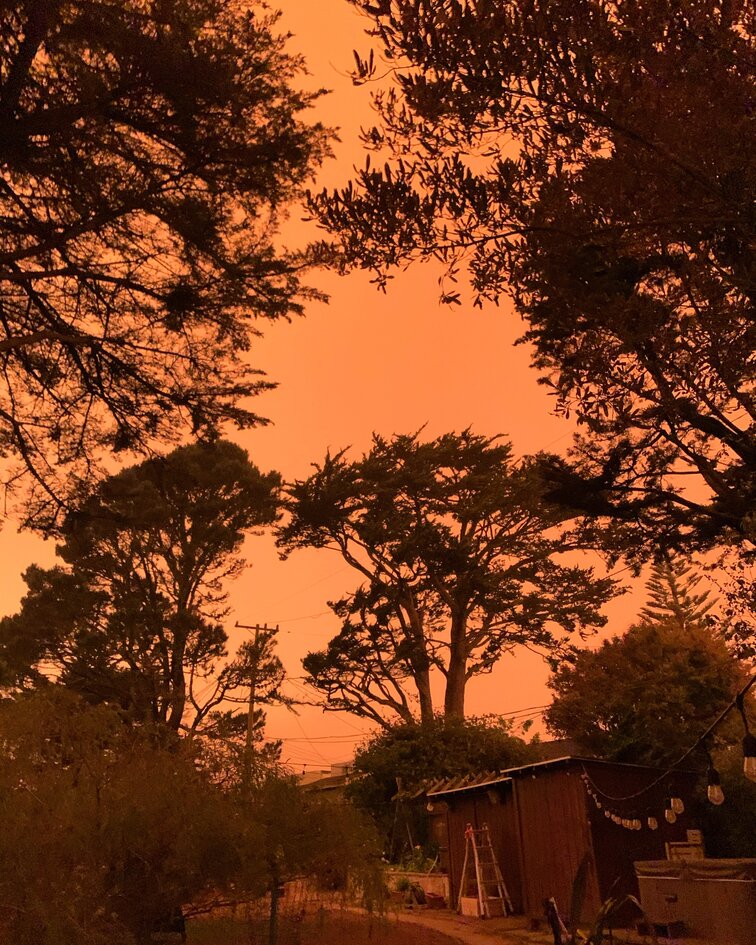MIA QUAGLIARELLO.
content & community leader, Flipboard. SAN FRANCISCO.
from information to understanding: a call for a new media ecosystem.
I had stitched together the career of my dreams when the pandemic hit. I had a great job at a company I loved (Flipboard), I got another job at a non-profit organization I loved (Burning Man), and I was finally trying a format I loved (podcasting). And now I could work from home? Yesss. I thought I had everything I wanted, carefully curated by me.
But once the walls around my days crumbled, the load of this responsibility became too much to bear. Imagine having to respond to Slacks, emails, texts, meetings and demands from multiple employers every day. I felt my physiology changing as I became more jumpy, more irritable, and more stressed. A content job never sleeps, and it certainly doesn’t care about the fact that you should be doing something else. Anyway, my bosses deserved someone 100% focused on them, not a frazzled frog who felt like she was being slowly boiled alive.
So I was pretty receptive when a new opportunity came along with a startup bent on doing things differently. Aside from the chance to focus on one thing and one thing only (long exhale), I could see that all my work led me to this point: content converging with consciousness. I have joined a company born from the seismic shifts happening in our culture today, with founders devoted to A New Way of doing business, including building a media company without advertising.
The road ahead is steep but necessary and exciting, and I’ve been pondering a lot on the ideas we talk about daily. They give me hope in a fractured, post-COVID world.
The divide is manufactured. Our media ecosystem has resulted in a state of exhaustion, confusion, and anger. Just watch a documentary like Netflix’s “The Social Dilemma” to understand how platforms like Facebook and YouTube addict and divide us in the name of clicks and profit. It’ll take a heroic effort to break these chains. Waking up to it is a start.
Do the work of understanding. Once we realize we are in bubbles of our own making, we’ve got to fight like hell to pop them. This means everything from following people you don’t normally agree with on Twitter, to resisting click bait in favor of deeper explorations and ‘slow news,’ to approaching conversations around hot button issues with patience and respect.
Listen to the truth of personal experience. It’s easy to get caught up in tired tropes and to debase “The Other” as predictable and clueless. Instead, obliterate stereotypes through personal stories. Someone’s lived-in experience cannot be argued. Everyone deserves to tell their story — and to be heard. Just that act of listening to them can be radical.
Redefine the gatekeepers. Who gets to share their opinion has been evolving since the printing press; now, of course, everyone gets to have a voice. Much as companies like Patagonia and Ben & Jerry’s have set a new standard about what it means to be a conscious company, we must re imagine a new kind of gatekeeper — one whose value is measured not in impressions and likes, but in their ethical backbone and constructive contributions to the overall ecosystem.
Carve out time for relationships. Now that we’re all homebodies, there’s no excuse not to reach out and (virtually) touch someone, especially as we face a long, socially distant winter. I am privileged to have a front-row seat to making — and maintaining — connections with interesting people of all kinds. (That’s part of why I said yes to contributing to this notebook.) Of course, selfishly, yeah, these relationships might come in handy one day. But what’s more important is that they bring warmth to the screen today; a reminder that 1-to-1 connection really matters in an increasingly remote world.
